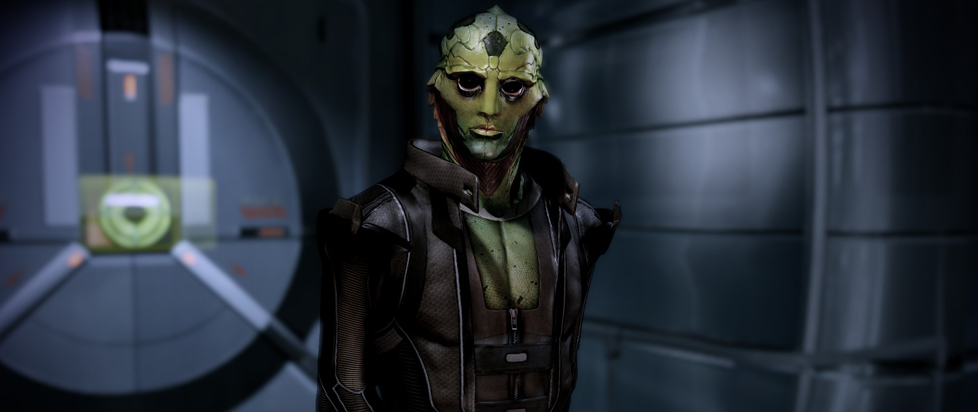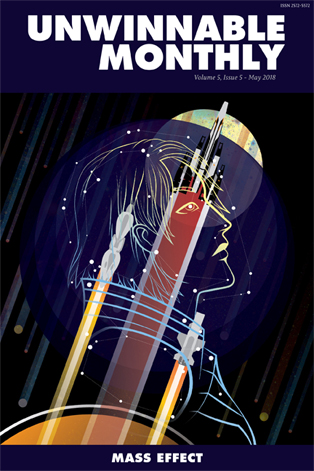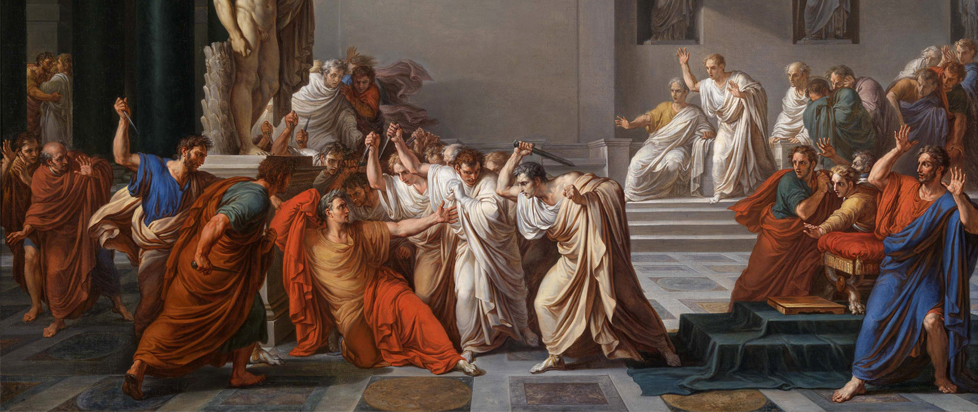
The Adult in the Room
 This feature is a reprint from Unwinnable Monthly #103. If you like what you see, grab the magazine for less than ten dollars, or subscribe and get all future magazines for half price.
This feature is a reprint from Unwinnable Monthly #103. If you like what you see, grab the magazine for less than ten dollars, or subscribe and get all future magazines for half price.
———
The galaxy in Mass Effect skews toward youth. The first game begins just 35 years after humans take their first steps outside the solar system. Even the Asari, the first species to make use of the Mass Relays after the destruction of the Protheans, have only been on the Citadel since 580 BCE. Nearly 2600 years may seem like a long time, but it’s less than three Asari lifetimes and, even on a human scale, this is only decades before the birth of Confucius and the Buddha, the establishment of democracy in Greece. The Old, Middle and New Kingdoms of Egypt have already risen and collapsed. It is seven years after the fall of Jerusalem to the Babylonians. The Great Pyramid of Giza is already two Asari lifetimes old.
It is not surprising then, that the problems of the Mass Effect universe are frequently the problems of adolescence. Humans want to be taken seriously as participants in galactic events, while everyone else wishes they would grow up a little. Even on the Normandy, Ashley Williams isn’t quite sure what to make of all the aliens she encounters, Tali is on her own for the first time, and Garrus is still struggling with his disillusionment with his first real job. Even Liara T’Soni, at 106, is in Asari terms, barely out of college.
Yes, this article is about Thane. Be patient.
Similar to the other two less-youthful new characters in Mass Effect 2, it’s not entirely accurate to describe Thane Krios as especially emotionally mature. Like Samara, Thane has a child from whom he is estranged. Like Zaeed Massani, the violence that organizes Thane’s life has left him somewhat emotionally stunted. Unlike Zaeed, however, who is basically a child, operating on a transactional system of reward and revenge, Thane has constructed a structure of ethical dissociation. Thane cares about right and wrong, but he outsources such considerations to his hanar handlers who raised and trained him.
Thane describes this arrangement as a great honor, but it is in fact a sort of indentured servitude under which certain drell children are given to serve the purposes of the hanar in exchange for the permission for the rest of the surviving drell to live on the hanar homeworld after the death of their own. This is not a situation to which Thane would have been capable of consenting, and the damage shows not just in his detachment from his son, but from the rest of his own species. As Shepard engages him in ongoing conversation, he describes her as the first friend he has made in ten years. It is clear he doesn’t have any others.
And yet, there are depths to Thane. Somewhat unusually, he has a spiritual life and he is aware of the damage his life and work do to his soul. Even if he describes himself as a tool, and object performing the will of others and thus absent of the possibility of responsibility, he prays over his victims, for himself at least as much as for them.
[pullquote]Thane … reads, somewhat remarkably given the context of his fellow crew, as a being with a center.[/pullquote]
Religion is not always treated with care in Mass Effect. I was frustrated in Mass Effect: Andromeda to be presented with the option to either endorse Suri Anwar’s Christianity or ridicule it, as neither felt true to the character I was working to perform. But in Mass Effect 2, Thane’s polytheism is allowed to be compelling without becoming a curiosity. It is built deeply into his character, and it shapes his struggle.
Because in Mass Effect 2, Thane may be less the grownup of the Normandy crew than he is simply, unhappily, ahead of the curve. Even before Shepard recruits him for the game’s suicide mission, Thane is dying, slowly being suffocated by the damage the moisture of his adopted homeworld has done to his lungs. Even if the romance option for Thane reads more as a rebound than the sort of a deep connection I would hope for from a character with such potential for rich interiority, he reads, somewhat remarkably given the context of his fellow crew, as a being with a center. Even when he reaches out for help, as he must given the game’s loyalty mission architecture, he knows precisely what it is he is asking for. Thane is not the only loyalty mission centered on family, but it is the only one where Shepard plays observer more than agent — interrogating, surveilling and finally witnessing rather than shooting.
In a game that does so much work in rich consideration of childishness — I mean, Legion alone! — Thane is welcome (and refreshing) as an old soul. In a galaxy scourged at least three times since the emergence of biologically modern humans 200,000 years ago, Thane offers the hope that the journey is possible even with a bad beginning and an untimely end. We can grow up, and even if we cannot escape ourselves, we can find at least the possibility of peace.
———
Gavin Craig is a writer and critic who lives outside of Washington, D.C. Follow him on Twitter @CraigGav.




